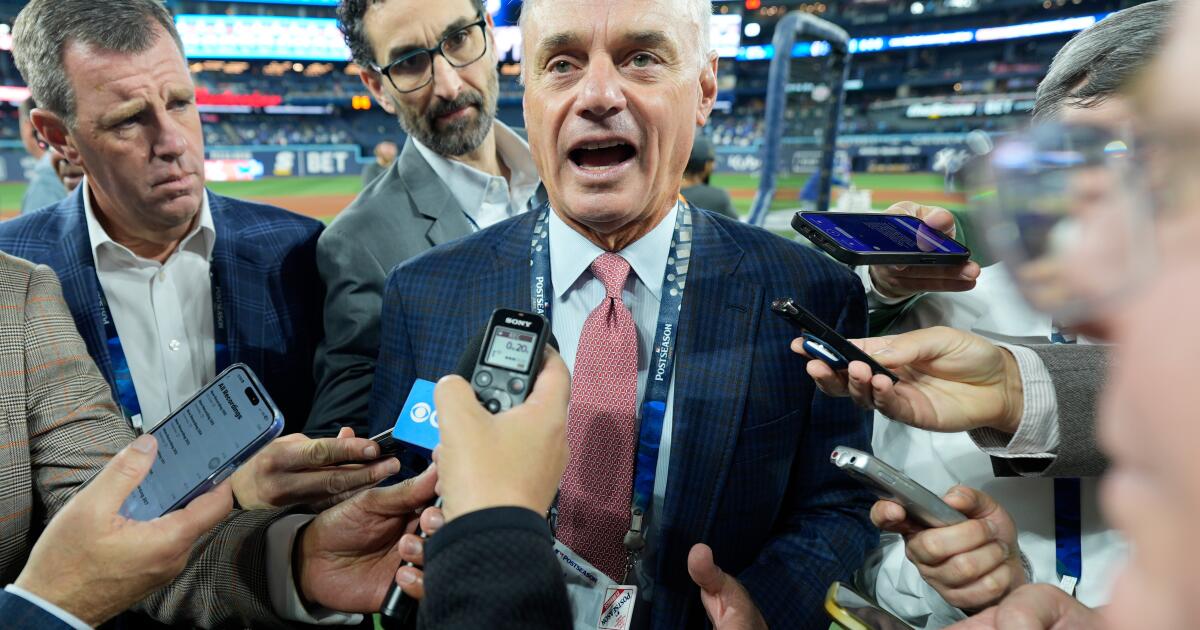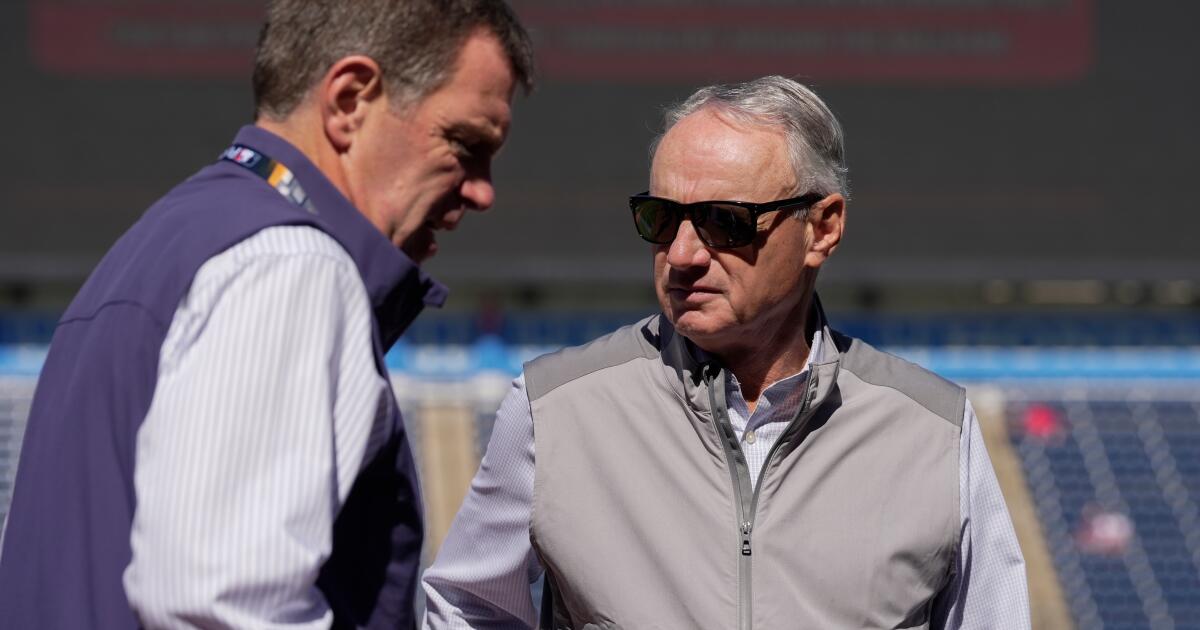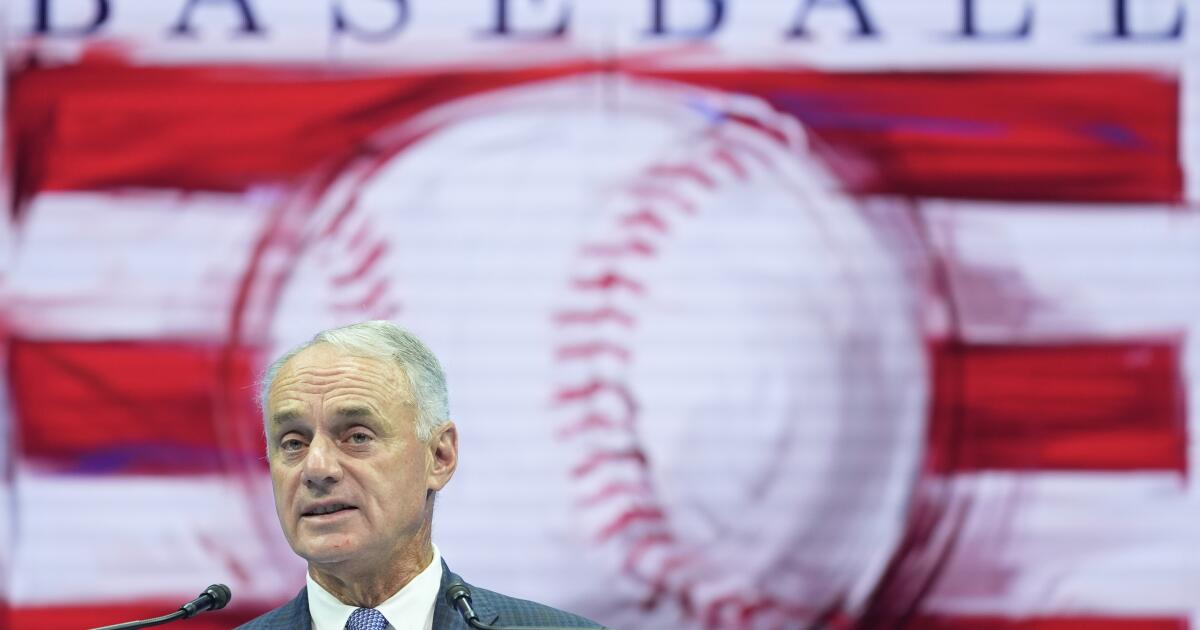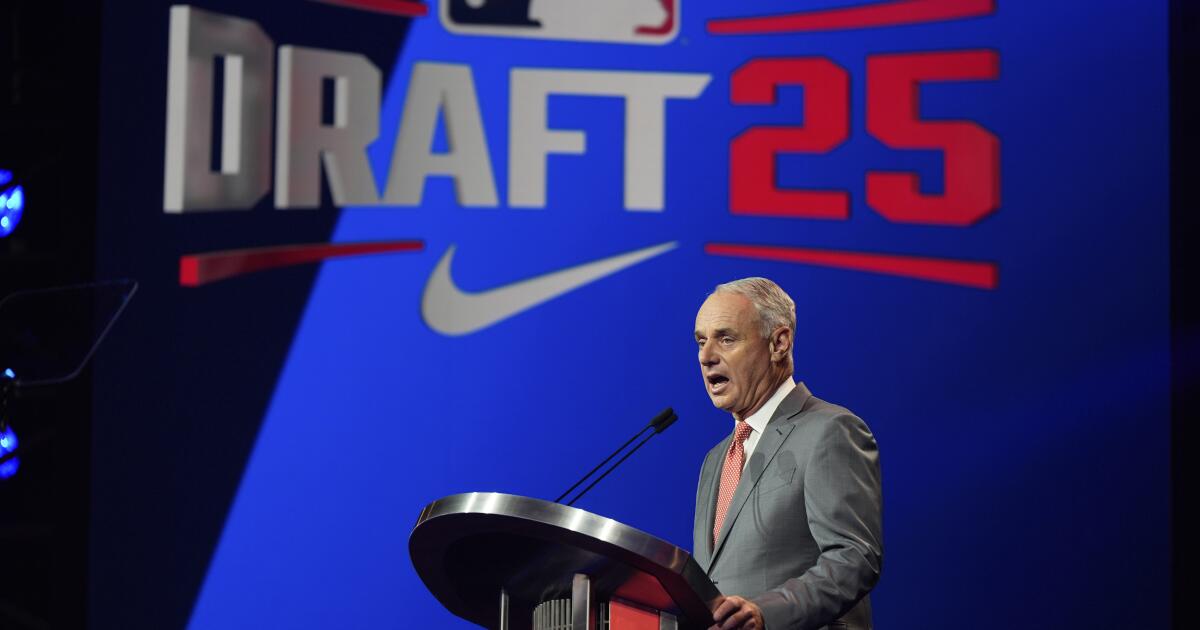If you want to watch every Dodgers game in 2026, you’ll likely need access to all of these outlets: SportsNet LA, Fox, ESPN, NBC, Peacock and Apple TV.
That is not, shall we say, fan-friendly.
Baseball’s holy grail is this: One place to watch your team, and every team, wherever you are. One price. No blackouts. No need to decide whether to pay up for a subscription to an outlet you may never watch after the game ends.
Rob Manfred, baseball’s commissioner, does not need to persuade fans about this. He does need to persuade the owners of all 30 teams about this.
Since Manfred would like to have this “All the Teams, All The Time” outlet up and running in 2029, he needs to start lining up votes among the owners. Manfred has talked about this goal for years, and I asked him if he can say this is really going to happen.
“I think that there is a lot of acceptance within the industry that, given what’s happened within the media environment, we need to be more national,” Manfred told me before the Dodgers and Philadelphia Phillies met Monday at Citizens Bank Park.
“The idea of centralizing, and getting more games available on national platforms, is really appealing to people. Now, we’ve got some cards to play, still. But I remain optimistic that it can happen.”
So does Stan Kasten, the president of the Dodgers.
“We are supportive of the notion of all fans anywhere being able to watch any game, and doing away with blackouts,” Kasten said. “That takes a lot of steps, and every team has a different situation.
“We have a long way to go, but the goal is an admirable one, one I think all fans will benefit from, and that is what is most important.”
This all sounds lovely so far. But the Dodgers are not about to unconditionally surrender what fans outside Los Angeles consider their greatest competitive advantage: money, and lots of it.
The Dodgers and Milwaukee Brewers are on course to meet in the National League Championship Series. The Brewers make about $35 million in local television revenue this year, according to Sports Business Journal.
The Dodgers make about 10 times that much in rights fees this year from Charter Communications, the parent company of Spectrum — and that annual rights fee will top $500 million by the end of the Charter contract in 2038. And there’s more: the Dodgers also own SportsNet LA.
If the 30 teams pooled their broadcast rights, Manfred believes they could generate interest not only from traditional outlets but from streamers such as Apple, Peacock, Paramount and Netflix. League officials believe the exclusivity of one package would generate more collective revenue than the combination of 30 individual team deals.
In theory, then, the Brewers would get significantly more than $35 million per year if the teams split the pot evenly. The Dodgers would get less, and probably much less. So would Manfred just lean on the Dodgers to go along for the good of the game?
“I don’t think you can make a change like this based on people saying this is for the good of the game,” Manfred said. “I think you make a change like this by people realizing who the buyers are, what they want to buy, and by packaging up a set of changes that make it kind of closer to an economic wash.”
Meaning cash-neutral for teams like the Dodgers — and the New York teams, Boston Red Sox and Chicago Cubs — still reeling in big bucks amid the collapse of regional sports networks outside large markets?
“Yeah, and there are a whole lot of ways to get there,” Manfred said.
He did not lay out his menu of options, but the first one is clear. Collective bargaining negotiations are scheduled to start next year, with the growing likelihood of a lockout after the 2026 season.
If owners can push through a salary cap — a cap that the players’ union insists will remain — then small-market owners could be guaranteed players would receive a guaranteed but limited percentage of league revenue. That cost certainty, coupled with the potential of increased revenue from a 30-team broadcast package, probably would win over small-market owners.
And that could be critical, because those owners currently make a fair amount of money from revenue sharing, under which teams are assessed a percentage of such money as ticket sales, concession sales and local media revenue. That money is pooled and shared equally for now, but Manfred could offer the Dodgers and other financial behemoths a chance to keep more of — or all of — that money for themselves.
The league also could offer to buy out SportsNet LA and other such channels, meaning more money for the Dodgers. And, although the Dodgers under current ownership do not appear interested in a salary cap, a cap would decrease player spending and thus increase team profits.
A wild card: With Shohei Ohtani, Yoshinobu Yamamoto, Roki Sasaki and Hyeseong Kim on their roster, the Dodgers could ask for greater revenue from international broadcast rights, which are now shared equally among teams.
Those are a lot of balls for Manfred to juggle. Kasten adamantly declined to say what might work for the Dodgers.
“You’re delving into areas that are way too premature for me to discuss, other than for me to tell you we agree with the goal,” he said. “The goal is a good one, and we hope baseball can get there.”



